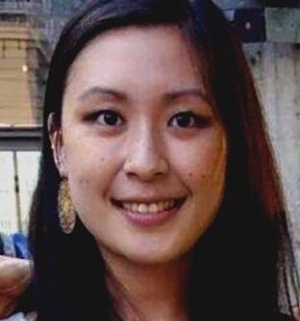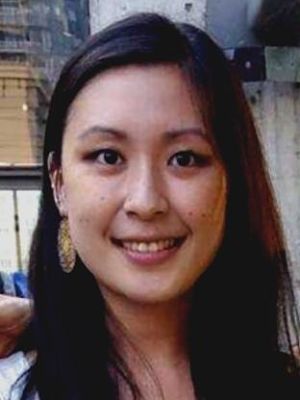Vows
As you stare at the photo hanging above the fireplace, you are acutely aware of your wife in the other room, folding laundry. You wonder if she can sense this shift in your life, triggered by what just arrived for you in the mail. Though you’ve never seen her handwriting in English, as soon as you see the tiny block letters spell out your name in the English phonetic interpretation that you’ve adopted in your new country, you know. Yoona left her name off the envelope, but there is a return address. Sugar Land, Texas.
He’s got a government job, you imagine nuna telling Jihyun excitedly, as she often did when she ran into prospective suitors during your single days. As the only daughter, nuna made it somewhat of a mission to find a suitable mate for her siblings, an activity that you and your brothers regard as women’s work. You remember the day she urged you to accompany her to church.
You convince yourself that it is the impracticality of space and distance that is keeping you apart, a mere physical hindrance instead of the dictates of tradition, the expectation of a carefully curated family tree.
“We never went to church back home. Why start now?”
“Don’t you know that’s where all the Korean girls are? Anyway, there’s this sweet girl I think will be good for you.”
Nuna gives you the rundown. Jihyun is twenty-two. Been in America for less than a year, by way of her older brother who owns a dry cleaning business in Chicago. The third daughter of a farming family from Nonsan City, 120 kilometers north of your hometown, where you left Yoona behind. You acquiesce. You know this is the way it works.
The last time you saw Yoona, you were sitting on the outdoor steps of the student dormitory at the private university in Gwangju, your hometown. You stare down at your lap as you tell her that hyeong, Older Brother, is able to bring you to America. “After everything,” she says, “you are just going to leave?” You think about the events of the past spring. Storming the city square, Yoona’s hand in yours, high on the sense of solidarity, the knowledge of doing something big, as you joined your fellow students and townsfolk, chanting, singing, Ari-Ari-Rang. Then the bullets. The screams. She must know that it is not safe to stay, that you cannot pass up the opportunity to start a life in America. You want to tell her that you will take her with you, that you will wait for her. Instead you reach for her palm, silently communicating that you had tried, that if the world wasn’t the way it was, you would be asking her to be your wife.
“I won’t allow it,” Ahbuhjee said when he learned of your plans to ask for Yoona’s hand. “A daughter of a divorcé is not suitable for our family.” You can’t imagine living a life separate from her while existing in the same space, knowing that even if you were to run to the opposite corner of the country, she would still be just a few hours drive away. And so you decide to leave. You convince yourself that it is the impracticality of space and distance that is keeping you apart, a mere physical hindrance instead of the dictates of tradition, the expectation of a carefully curated family tree.
After five years of marriage, your dinnertime conversation still resembles that of two strangers at a party, forced into awkward small talk because they don’t know anyone besides the host.
Jihyun is a good wife. She excels at making your favorite food from back home. Every day when you come home from work the table is already set with a steaming bowl of sticky rice and soondubu or some other jjigae, the broth still bubbling in the claypot. Or, if the weather is nice enough to open the windows, samgyeopsal, thick, slick slices of pork belly, grilled right on the table and wrapped in romaine picked from the garden. Once a month, she takes a giant steel basin outside to make kimchi, squatting on the concrete patio in the backyard of your suburban home, kneading salt and gochujang into the cabbage leaves.
After five years of marriage, your dinnertime conversation still resembles that of two strangers at a party, forced into awkward small talk because they don’t know anyone besides the host. How was work? How was your day? The food is delicious. As soon as you finish your last bite, you stand up, go to the living room to watch the news as she clears the dishes, washes them by hand even though you have a working dishwasher.
The photo that hangs above the fireplace is a candid shot from your wedding day, the two of you facing each other against the blurred backdrop of the church’s altar. Neither of you are smiling, as if in deep reverence of the words of God being expressed through the pastor. But you know the real reason. For her, because the flowers are late, and for you, the overwhelming clamor of the mantra you’ve been reciting in your head since that day you first set eyes on the woman standing before you. She is not Yoona, but you can learn to love her.
You shove the letter into your briefcase, taking extra care to jumble the numbers on the combination lock. You plan to read it in your car tomorrow, in the safety of the parking lot of your office. You know Jihyun will not sense anything out of the ordinary, for perhaps the letter did not change anything at all. For you always knew what you would do if this day were to come, the day where one of you traversed an entire ocean to bridge the space that had been keeping you apart. You knew this before you hid the letter in the briefcase, before you slipped the ring on Jihyun’s finger, before you boarded the plane nine years ago onto the twelve-hour flight that would bring you to where you are now.


 Dhaea Kang is a singer-songwriter and emerging fiction writer from Chicago, IL. She has been dealing with her seemingly endless songwriter’s block by channeling her energy into writing stories.
Dhaea Kang is a singer-songwriter and emerging fiction writer from Chicago, IL. She has been dealing with her seemingly endless songwriter’s block by channeling her energy into writing stories.


